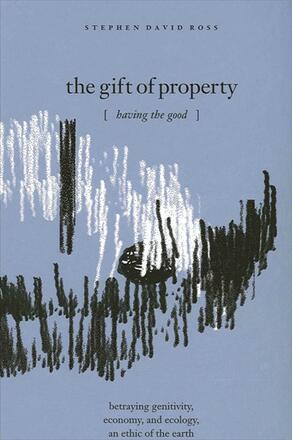
The Gift of Property
Having the Good / betraying genitivity, economy and ecology, an ethic of the earth
Alternative formats available from:
Explores the human propensity for owning and having.
Description
This is the fifth volume in an ongoing project reexamining the philosophic tradition from the standpoint of the good. The ongoing project seeks to understand humanity's relation to nature in a profoundly ethical way. This volume develops an understanding in ecological terms. It does so by examining the notion of giving in relation to having, calling into question the ways in which being human, and being itself, have been understood in terms of what one must have and possess in order to live well—goods, qualities, a body, a dwelling, freedom, land, children, family, things, knowledge, power, authenticity—all forms of genitivity. Having is explored in terms of ecstasy, squander, generosity, and sustenance, then as betrayal and forgiveness. Betrayal is understood as the expressiveness of things, always promised to circulation in abundance beyond containment, use or profit: the circulation of goods and commodities together with the circulation of images, meanings, language, and writing.
Stephen David Ross is Professor of Philosophy and Comparative Literature at State University of New York at Binghamton. He is the author of many books including The Gift of Beauty: The Good as Art; The Gift of Truth: Gathering the Good; The Gift of Touch: Embodying the Good; The Gift of Kinds: The Good in Abundance/ an ethic of the earth; and editor of Art and Its Significance: An Anthology of Aesthetic Theory, all published by SUNY Press.
Reviews
"The phenomenon of the gift, and the aporia of gift-giving and gift-receiving, has intrigued and puzzled some of the best minds from the time of Nietzsche and Maus to Jacques Derrida, and beyond. Ross succeeds in addressing this phenomenon from a multitude of perspectives and provides highly imaginative and provocative insights along the way. He addresses a cluster of issues that are veritably at the cutting edge of contemporary philosophical interests, and particularly as these interests have come to the fore in recent continental philosophy." — Calvin O. Schrag, author of The Self after Postmodernity